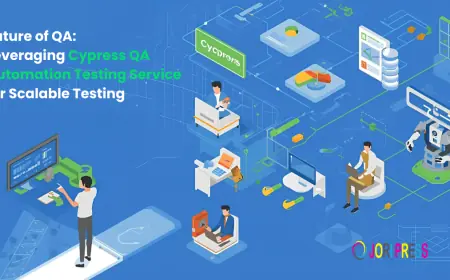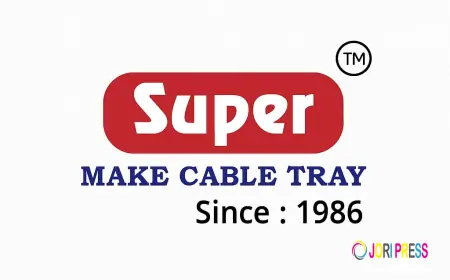Cleaning Up the White House Understanding the Presidential Ethics Reform Act
The office of the President of the United States holds immense power and responsibility. With that power comes a serious need for trust and transparency.
The office of the President of the United States holds immense power and responsibility. With that power comes a serious need for trust and transparency. For years, there's been a growing call to ensure that the person leading the country, and their team, always act with the highest ethical standards. This is where the idea of the Presidential Ethics Reform Act comes in.
While a specific, standalone "Presidential Ethics Reform Act" might not be a single law passed at one moment, the term represents a collection of efforts, proposed laws, and existing rules aimed at making sure presidents, vice presidents, and top officials avoid conflicts of interest, use their power fairly, and are held accountable. Think of it as a big umbrella covering all the ways we try to keep the White House honest.
Why Do We Need Ethics Reform in the First Place?
Imagine a situation where the President makes a decision that benefits their private business, or where a family member uses their connections to strike a lucrative deal. These scenarios, whether real or perceived, chip away at public trust. When people lose faith in their leaders, it harms democracy.
The need for strong ethical rules for the President and their administration stems from several key concerns:
-
Conflict of Interest: This is the big one. It's when a person in power has a personal stake (like money or property) in a decision they're making for the public. For a President, this could involve policies that affect companies they own, or foreign relations that benefit their family's business dealings.
-
Abuse of Power: This refers to using the immense authority of the presidency for personal gain or to unfairly target opponents.
-
Transparency: The public has a right to know what their leaders are doing and why. If financial dealings or meetings are hidden, it creates suspicion.
-
Public Trust: Ultimately, strong ethics rules are about building and maintaining public trust. Without it, the government can't function effectively.
-
Appearance of Impropriety: Sometimes, even if nothing illegal happens, an action can look wrong. For example, if a President's relative gets a big government contract, it might look like favoritism, even if all rules were followed. Ethics reform tries to prevent even the appearance of wrongdoing.
These concerns aren't new. Throughout history, various laws and norms have tried to address them, but modern presidencies, with their complex financial ties and global reach, have highlighted the need for even stronger and clearer rules.
Key Areas the Presidential Ethics Reform Act Aims to Tackle
When we talk about the Presidential Ethics Reform Act, we're usually talking about proposals and efforts that target specific areas where ethical concerns often arise.
1. Financial Transparency and Conflicts of Interest
This is perhaps the most critical component. Presidents are often very wealthy individuals with complex business empires.2 The reform act would typically push for:
-
Mandatory Divestment or Blind Trusts: Currently, a President isn't legally required to sell off their business assets. They can put them in a "blind trust," which is supposed to be managed by an independent third party without the President's knowledge.3 However, if the assets are well-known (like a famous hotel chain), the "blindness" of the trust can be questioned. A stronger reform might require full divestment, meaning the President would have to sell all their business holdings to truly separate their personal finances from their public duties.
-
Broader Financial Disclosure: Requiring more detailed and frequent public reports of income, assets, and liabilities for the President, Vice President, and potentially even their immediate family members.4 This would shine a light on potential conflicts before they become problems.
-
Preventing Personal Profit from Office: Making it explicitly illegal for the President or Vice President to use their position to enrich themselves or their family. This could include things like directing government business to their properties or promoting their brands while in office.
2. Anti-Nepotism and Family Involvement
The current anti-nepotism law generally prevents public officials from appointing relatives to agency positions over which they have authority. However, it's been argued whether this applies directly to White House staff. An extended ethics reform for iPhone would clarify and strengthen rules around:
-
Limiting Family Roles: Clearly defining what roles family members can and cannot hold in an administration, especially if those roles involve direct policy influence or access to classified information, without proper vetting and accountability.
-
Transparency for Family Dealings: Requiring disclosure of any significant business dealings between family members of the President and foreign governments or entities.
3. Lobbying and "Revolving Door" Issues
The "revolving door" refers to former government officials using their inside knowledge and connections to lobby their former colleagues for private companies, often for huge sums of money.5 For presidents and their top staff, this is a major concern. Ethics reform would likely include:
-
Longer Lobbying Bans: Extending the period during which former presidents and high-level appointees are forbidden from lobbying the government. Currently, there are restrictions, but many argue they aren't long enough to prevent undue influence.
-
Restrictions on Foreign Lobbying: Specific rules to prevent former officials from lobbying on behalf of foreign governments, especially those with questionable human rights records or hostile intentions towards the U.S.
4. Campaign Finance and Inauguration Funding
While often covered by separate laws, ethics reform could also touch on how campaigns and inaugurations are funded, given the potential for influence-buying. This might include:
-
Caps on Inaugural Donations: Limiting how much individuals or corporations can donate to the presidential inauguration committee, which often serves as a pathway for gaining access to the new administration.
-
Transparency for Dark Money: Efforts to increase transparency around "dark money" (political spending where the donors are not disclosed) that could indirectly benefit a presidential campaign.
5. Enforcement and Oversight
Even the best rules are useless without strong enforcement. A comprehensive Presidential Ethics Reform Act would focus on:
-
Strengthening Oversight Bodies: Giving more power and independence to government ethics offices (like the Office of Government Ethics) to investigate potential violations.
-
Clearer Penalties: Establishing specific and meaningful penalties for ethics violations by presidents and their staff, beyond just public reprimand.
-
Whistleblower Protections: Enhancing protections for individuals who come forward to report ethics violations within the executive branch.
The Challenge of Enacting Ethics Reform
Passing a comprehensive Presidential Ethics Reform Act is incredibly difficult. Here's why:
-
Constitutional Powers: The President holds unique constitutional powers, and any law trying to restrict them too much can raise legal challenges.
-
Political Will: Passing such an act often requires bipartisan support, which is hard to come by, especially when one party holds the presidency. The party in power might not want to limit its own future actions.
-
Defining "Ethics": While some things are clearly unethical (like taking bribes), others are more of a gray area, making it hard to write perfect laws.
-
Enforcement Loopholes: Clever lawyers can always find ways around new rules if they aren't written precisely.
Despite these challenges, the push for greater ethical accountability in the White House continues. Public pressure, media scrutiny, and the efforts of good-government groups keep these issues on the legislative agenda.
Existing Ethics Frameworks (and Their Limitations)
It's important to remember that ethics rules for presidents aren't entirely absent. We already have several laws and norms in place:
-
Ethics in Government Act of 1978: This law requires financial disclosure from many federal officials and sets up the Office of Government Ethics (OGE).6 However, its power over the President himself is limited; the OGE can only advise, not compel, the President.
-
Emoluments Clauses of the Constitution: These are ancient parts of the Constitution designed to prevent U.S. officials from accepting gifts or titles from foreign states ("Foreign Emoluments Clause") or from states within the U.S. ("Domestic Emoluments Clause") without Congressional approval.7 These clauses have become highly debated in recent years regarding presidential business dealings.
-
Campaign Finance Laws: These regulate how money is raised and spent in political campaigns, aiming to reduce corruption.8
-
Anti-Bribery and Corruption Laws: General criminal statutes apply to all citizens, including the President, preventing bribery and other forms of public corruption.
The problem, as proponents of a Presidential Ethics Reform Act argue, is that these existing frameworks are often seen as insufficient, having loopholes, or lacking clear enforcement mechanisms specifically tailored to the unique powers of the presidency.
Conclusion: A Continuous Pursuit of Trust
The concept of a Presidential Ethics Reform Act isn't about targeting any single individual or administration. It's about strengthening the institutions of American democracy to ensure that the highest office in the land is always seen as acting in the public's best interest, free from the taint of personal gain or hidden agendas.
It's an ongoing conversation, a continuous pursuit of trust and transparency. While a single, all-encompassing act may be elusive, the debate and the various proposals it encompasses push us closer to a future where the President, Vice President, and their administration are held to the very highest ethical standards the public deserves. It’s about making sure that the White House isn’t just a symbol of power, but also a beacon of integrity.
Frequently Asked Questions (FAQs)
1. Is the "Presidential Ethics Reform Act" a single law that has been passed?
Not exactly. While various specific bills and proposals have been introduced in Congress under similar names, there isn't one single, comprehensive "Presidential Ethics Reform Act" that has become law covering all aspects discussed. The term often refers to the collection of ongoing efforts and proposed legislation aimed at strengthening ethics rules for the President and Vice President.
2. What is a "conflict of interest" for a President?
A conflict of interest happens when the President or Vice President has a personal financial interest (like owning a business or stock) that could be affected by official decisions they make.9 For example, if a President owns a hotel chain and then makes foreign policy decisions that benefit that chain, it would be a conflict of interest.
3. What is a "blind trust" and why is it sometimes criticized?
A blind trust is supposed to be an arrangement where a person's financial assets are managed by an independent trustee who makes investment decisions without the owner's knowledge.10 The idea is to prevent conflicts of interest. However, for a President with widely known assets (like a famous brand), critics argue the trust isn't truly "blind" because everyone knows what assets are in it, and decisions can still be perceived as benefiting those assets.
4. Does the anti-nepotism law apply to the President's family?
The federal anti-nepotism law generally prevents public officials from appointing relatives to civilian positions in the agencies they oversee.11 There's been debate about whether it applies to White House staff appointments, which are considered part of the President's immediate office, rather than an "agency." Ethics reform proposals often aim to clarify or expand this law to cover all close family appointments.
5. What is the "revolving door" problem in government ethics?
The "revolving door" refers to the movement of individuals between government positions and jobs in the private sector (especially lobbying firms).12 The concern is that former officials might use their insider knowledge and connections gained from public service to unfairly benefit private companies, or that current officials might make decisions based on the promise of a lucrative private job later.
6. What are the "Emoluments Clauses" of the Constitution?
These are two parts of the U.S. Constitution (Article I, Section 9) that aim to prevent corruption and foreign influence. The "Foreign Emoluments Clause" prevents federal officials, including the President, from accepting gifts, titles, or profits from foreign governments without Congressional approval.13 The "Domestic Emoluments Clause" has been interpreted to prevent federal officials from receiving increased compensation or benefits from state governments.
7. Does the Office of Government Ethics (OGE) have power over the President?
The Office of Government Ethics (OGE) provides ethics guidance and oversight for the executive branch.14 However, for the President and Vice President, OGE's role is largely advisory. It cannot compel a President to follow its recommendations, nor can it directly investigate or prosecute them for ethics violations. This is a key area where proposed ethics reforms seek to strengthen oversight.
8. Why is it so hard to pass strong ethics reform laws for the presidency?
It's difficult for several reasons: the unique constitutional powers of the presidency, the need for broad bipartisan political will (which is often scarce), the complexity of defining every ethical gray area in law, and the constant challenge of closing legal loopholes.
9. What role does public trust play in presidential ethics?
Public trust is fundamental. When citizens believe their leaders are acting honestly and for the public good, they are more likely to support policies and the government as a whole. Ethics scandals erode this trust, making it harder for a president to govern effectively and harming the democratic process itself.15
10. How can I learn more about ethics in government?
You can visit the website of the U.S. Office of Government Ethics (OGE), search for "good government" watchdog organizations, or read reports from non-partisan research groups that focus on government accountability and transparency.
What's Your Reaction?
 Like
0
Like
0
 Dislike
0
Dislike
0
 Love
0
Love
0
 Funny
0
Funny
0
 Angry
0
Angry
0
 Sad
0
Sad
0
 Wow
0
Wow
0
















































